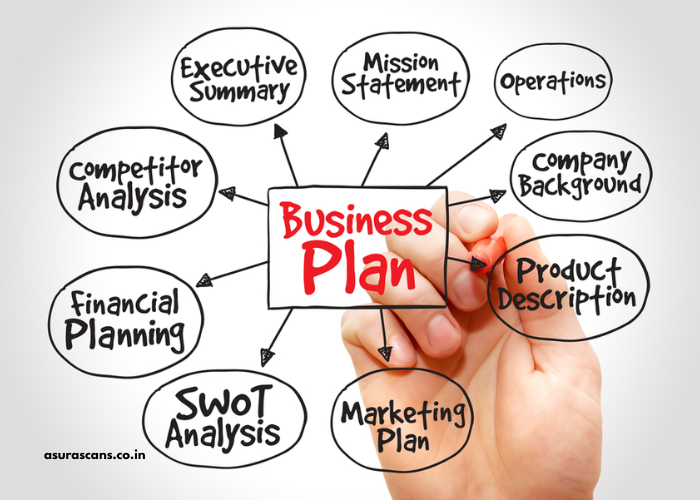Starting a business is an exciting endeavor, but it requires careful planning, commitment, and a strategic approach to ensure long-term success. One of the most critical aspects of starting a business is creating an effective business plan. A business plan serves as a roadmap for the business, outlining goals, strategies, and financial projections. For startups, this document is invaluable, providing direction, attracting investors, and helping entrepreneurs understand their market position. In this article, we will explore the significance of business planning for startups and provide essential steps to create a comprehensive, actionable plan.
Why Is Business Planning Essential for Startups?
Business planning is a vital process for any new business, especially startups. The journey from a startup idea to a successful business requires navigating a variety of challenges, including securing funding, building a customer base, and establishing a solid operational structure. A well-crafted business plan serves as the foundation upon which these objectives can be achieved.
Here are the key reasons why business planning is essential for startups:
- Clarifies Vision and Objectives: A business plan helps define the company’s vision, mission, and core objectives. It outlines the direction the startup will take, ensuring that all decisions align with long-term goals.
- Provides a Roadmap: A business plan offers a step-by-step guide for starting and growing the business. It helps entrepreneurs understand what actions need to be taken at various stages of the startup journey.
- Attracts Investors and Partners: Investors and potential business partners need to understand the startup’s goals, market strategy, and financial forecasts before committing their resources. A detailed business plan instills confidence and demonstrates preparedness.
- Identifies Potential Challenges: Planning forces entrepreneurs to anticipate potential challenges, risks, and obstacles. By addressing these issues early on, startups can mitigate risks and stay on track.
- Improves Decision-Making: With a business plan in place, entrepreneurs have a reference point for making informed decisions. The plan guides actions and ensures that the business remains focused on its goals.
Key Elements of an Effective Business Plan for Startups
A business plan is not a one-size-fits-all document. The contents of a business plan can vary depending on the industry, size of the startup, and the entrepreneur’s specific needs. However, every business plan should include the following essential components:
Executive Summary
The executive summary is the first section of the business plan but should be written last. It provides a concise overview of the entire business plan, highlighting the key points, including the business idea, market opportunity, business model, and financial projections. This section should capture the reader’s attention and provide a snapshot of what to expect in the document. While it’s placed at the beginning, it’s often the last part to be finalized, as it synthesizes the rest of the plan.
Company Description
This section provides detailed information about the startup, including its mission, vision, legal structure (sole proprietorship, partnership, LLC, corporation), and the nature of the business. It also discusses the problem the business intends to solve and how the startup plans to solve it. The company description is crucial for understanding the startup’s overall goals and values.
Market Research and Analysis
Understanding the market is one of the most crucial components of any business plan. The market research section includes information about the target audience, market trends, customer behavior, and industry dynamics. It also involves an analysis of competitors in the market. By researching the competition, a startup can identify gaps in the market and differentiate its product or service.
Key points to include in market analysis:
- Target Market: Define the specific customer segment the business will target. Consider demographics, psychographics, geographic location, and customer needs.
- Market Trends: Identify current and emerging trends within the industry and explain how the business will adapt or capitalize on them.
- Competitor Analysis: Identify and analyze direct and indirect competitors. Understand their strengths and weaknesses to determine the startup’s competitive advantage.
Business Model and Strategy
This section outlines how the startup intends to make money and sustain profitability. It covers pricing strategies, revenue streams, sales channels, and marketing strategies. Startups should focus on their unique value proposition (UVP), demonstrating why their product or service is better than the competition.
The business strategy should cover:
- Value Proposition: Explain how the startup solves a customer pain point and why it’s the preferred choice in the market.
- Revenue Model: Describe how the business will generate revenue (e.g., direct sales, subscription model, advertising, etc.).
- Sales and Marketing Strategy: Outline the sales approach and marketing tactics that will be used to acquire customers. This includes digital marketing, partnerships, PR campaigns, and more.
Product or Service Line
Here, startups should provide detailed information about their product or service offerings. This includes how the products are developed, the features and benefits they provide, and any intellectual property (IP) involved. It’s also important to include information about product lifecycle, future developments, and innovation plans.
Operations Plan
The operations plan outlines the daily operations necessary to run the business. This includes:
- Location: Where the business will operate (physical location, remote, or hybrid model).
- Suppliers and Manufacturers: Any suppliers or manufacturers involved in the business process.
- Production Process: Details on how products are made, services are delivered, and the supply chain is managed.
- Technology and Equipment: Any special equipment or technology required to run the business.
Management and Team
Investors often want to know who is leading the startup and the team behind the business. This section should introduce the key team members, their roles, and relevant experience. It’s also important to outline any gaps in the team and plans to fill those positions in the future.
Financial Plan and Projections
The financial section is crucial for securing investors and funding. It should include financial statements such as income statements, cash flow projections, and balance sheets. The financial plan should cover:
- Startup Costs: Outline the initial investment required to start the business, including equipment, inventory, and operational expenses.
- Revenue Forecast: Estimate how much revenue the startup expects to generate in the first few years.
- Break-Even Analysis: Determine when the startup expects to reach profitability and how much revenue is needed to cover costs.
- Funding Requirements: If the startup needs external funding, this section should clearly state the amount needed and how it will be used.
Risk Analysis and Contingency Plan
Every business faces risks. This section should highlight potential risks to the startup, including financial risks, market risks, operational risks, and legal risks. Startups should also present a contingency plan to mitigate these risks and ensure the business can continue to grow even in challenging times.
How to Create a Successful Business Plan for Startups
While having a comprehensive business plan is essential, the process of creating it can be overwhelming. Below are some steps that will guide you through the process of creating an effective business plan:
Research and Analyze Your Market
Start by conducting thorough research to understand your market, industry trends, and competitors. The more informed you are, the more realistic and achievable your business plan will be.
Be Realistic with Financial Projections
Overly optimistic financial projections can undermine the credibility of your plan. Be realistic with your projections, and base them on solid data. Ensure that your forecast is grounded in research, and account for both high and low revenue scenarios.
Focus on Your Unique Selling Proposition (USP)
What makes your startup different from competitors? Highlight your unique selling proposition and explain why customers should choose your product or service over others in the market.
Set Clear and Achievable Milestones
Define clear, measurable milestones that will mark your progress. These could include sales targets, product development milestones, or customer acquisition goals. Tracking these milestones will help you stay on course and make adjustments if necessary.
Keep the Plan Concise but Comprehensive
While a business plan should cover all relevant aspects of your business, it should also be concise. Investors and partners don’t have time to read through unnecessary details. Keep your plan clear and to the point, focusing on the most important information.
Conclusion
Effective business planning is crucial for the success of any startup. A well-structured business plan serves as a roadmap, guiding entrepreneurs through the complexities of building a business. It helps attract investors, define the startup’s vision, and mitigate potential risks. By focusing on market research, financial projections, and a clear business strategy, startups can position themselves for growth and success. As you embark on your entrepreneurial journey, take the time to create a detailed and actionable business plan—this investment of time and effort will pay off as you move towards turning your vision into reality.





